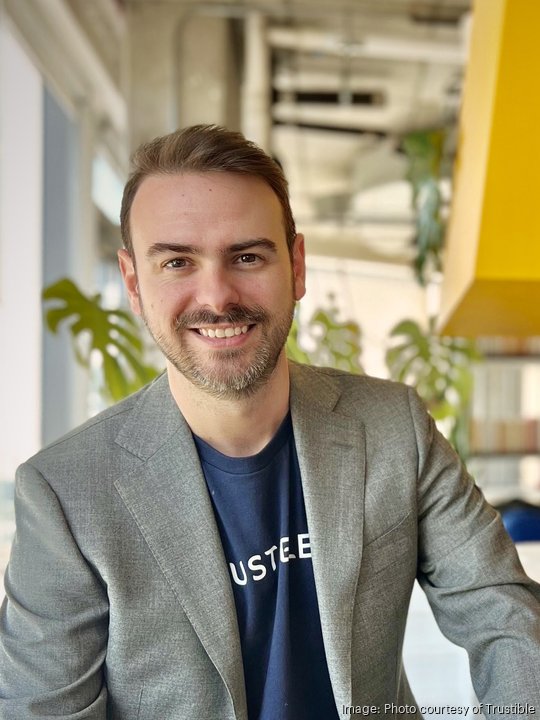
D.C. artificial intelligence governance startup Trustible has added a bunch of big names in government regulation and finance to its advisory board to help it stand out in a crowded AI management software market.
The explosion of generative AI tools like ChatGPT has pushed many companies to capitalize on the new technology, but quick adoption comes with a lot of risk. Companies like cybersecurity firm CalypsoAI are banking on clients wanting to protect themselves from the data risks of AI, while Trustible is focusing on regulatory risks by helping companies stay compliant with new AI legislation on federal and state levels when building and using AI technology.
Founders Andrew Gamino-Cheong and Gerald Kierce-Iturrioz are alums of D.C. legal and regulatory data software firm FiscalNote Holdings Inc. (NYSE: NOTE), which went public in July 2022. Their experience in government regulation is what attracted political veterans like John Bailey, who served under George W. Bush as special assistant for domestic policy and deputy policy director to the U.S. Secretary of Commerce, and Jon Leibowitz, former head of the Federal Trade Commission under Obama, to Trustible's advisory board.
“There's a lot of folks who talk about governance, but they don't have the depth in terms of working with policy or legislation that Gerald and the team have,” Bailey said.
He said he's seen governance software on the data privacy side without the legislative and regulatory expertise and was unimpressed.
“What they do is they send you spreadsheets of like 300 bills that are being introduced in states, but only 2% of those are going to get passed," Bailey said. "[Trustible] has a better sense of which [bills] to pay attention to and index and helps people get ahead of the curve and escape to where the puck is going, not just wait to when the bill is passed.”
In terms of AI regulation, what is out there currently is the White House's Blueprint for an AI Bill of Rights that sets a framework for how AI should responsibly impact society, including core principals that it should be safe and effective, have protections for discrimination, should allow for data privacy, should give notice of its use, applications and outcomes, and there should be ways to opt out of participating in AI applications.
Bailey and Kierce-Iturrioz expect security and policy around AI to align with National Institute of Standards and Technology (NIST) AI Risk Management Framework. Both feel the AI regulation conversation is to be determined and is changing every day.
"The government doesn't necessarily understand the technology and how it works, but they understand how people and processes work and if there are gaps in any of those, they will look to ding those companies," Kierce-Iturrioz said. He doesn't expect any new laws on AI with next year being an election year.
"To be honest with you, I've talked with a lot of staff in Congress and I've never seen them more uncertain about how to engage an issue than on this," Bailey said.
He expects the regulation discussions will play out similarly to congressional action around data privacy and online content policy modernization. Bills around those issues didn't pass. The uncertainty around Congress is why Bailey and Kierce-Iturrioz think state legislation will play a big role.
Kierce-Iturrioz spent eight years at FiscalNote and worked as the vice president of AI solutions, while Gamino-Cheong spent seven years there and left as the senior director of data infrastructure and enterprise integration. Both left FiscalNote in December 2022 and founded Trustible in January.
The company came out of stealth mode in April with a $1.6 million seed round led by New York venture capital firm Harlem Capital. It’s still pre-revenue and is currently beta testing its product with mid-sized tech companies and Fortune 500 insurance and banking companies.
The D.C. startup currently has seven employees and Kierce-Iturrioz said he plans to hire one or two people over the next 12 months in marketing or development operations if customer demand picks up.
The rest of the advisory board includes Christine Keung, former chief data officer for the city of San Jose, California; Dennis Hirsch, professor of law and computer science at Ohio State University; and Sultan Meghji, former chief innovation officer at the Federal Deposit Insurance Corp.
An earlier version of this story misstated the president John Bailey worked under. It was the George W. Bush administration.


